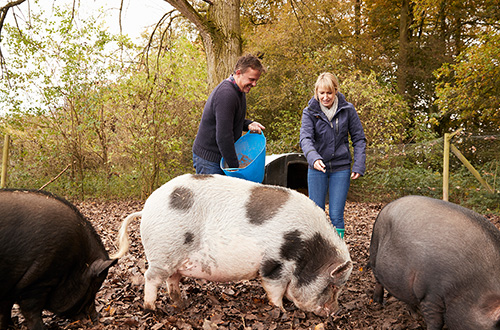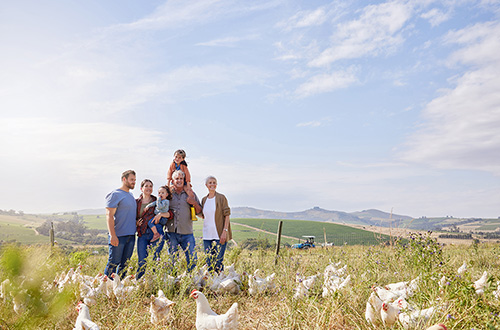HMRC has published a range of ‘administration and simplification’ measures for taxpayers, including:
1. Capital goods scheme simplification
The capital goods scheme is a scheme that aims to ensure VAT is only recovered on capital items to the extent they are used for taxable supplies over a 10-year period. It can result in a clawback of VAT where VAT was recovered in full on purchase and that asset is used for an exempt purpose in the following 10 years.
For example, if a trading business acquires a trading property or incurs capital expenditure to enhance the property, it would reclaim the VAT on that expenditure on the basis that it is an owner-occupier. However, if it later sells that property, without seeking tax advice, they may assume they could just sell the property as an exempt supply, without any VAT implications. However, in that scenario, a clawback of some of the initial VAT reclaimed would arise if that sale occurs within 10 years of the initial expenditure.
It currently applies to capital expenditure on land and buildings in excess of £250,000, but HMRC has proposed to increase this to £600,000 and also remove computers from the scope of the scheme.
The timing of when these new rules take effect is to be confirmed. For example, will the new limit only apply to expenditure incurred on or after the date these changes are enacted? Or alternatively, could it apply retrospectively to expenditure incurred before that date, where the exempt supply is made after the date the change is enacted?
This also raises a question mark over how this will impact private schools now making taxable supplies. In reality, most capital items would have been purchased at a time when schools were making exempt supplies; therefore, they would not have recovered the VAT. Therefore, there may be scope for schools to recover VAT on capital expenditure already incurred. However, is this now only for schools that have spent over £600,000 in the last 10 years, whereas previously it was £250,000?
2. Mandatory payrolling of benefits deferred
Initially planned to take effect from April 2026, the mandatory payrolling of Benefits in Kind (BiK) will be delayed until April 2027, allowing employers more time to plan for the change.
From April 2027, the reporting process for BiKs and expenses will be through the Full Payment Submission (FPS). This is the same process employers currently use to report salary and other employee details to HMRC when payments are made to employees.
The FPS will be used to report the taxable value of BiKs and expenses so that both Income Tax and Class 1A NICs can be reported in real-time.
3. Check Employment Status for Tax’ (CEST) tool revisions
The CEST tool is an online ‘questionnaire’ to assist in establishing whether an individual should be classed as employed or self-employed.
HMRC is making some changes to the tool with effect from 30 April 2025, with a view to making it easier to use.
4. Transfer pricing
The transfer pricing rules aim to ensure that transactions between associated companies are taxed as if they were undertaken at ‘arm’s length’, i.e., as if they were between third parties. The UK rules only apply where a transaction has created a UK tax advantage, meaning this mainly applies where a UK company is part of a larger worldwide group.
Currently small and medium-sized enterprises are exempt from transfer pricing, being enterprises that meet the following criteria:
| Maximum number of employees | AND less than one of the following limits: | ||
| Annual turnover | Balance Sheet total (meaning gross assets) | ||
| Small Enterprise | 50 | €10 million | €10 million |
| Medium Enterprise | 250 | €50 million |
€43 million
|
Where the entity is a member of a group or has an associated entity, these limits apply to the whole group and not the specific entity.
HMRC has published a consultation to bring medium enterprises within the scope of transfer pricing.
They have also made proposals to introduce a requirement for multinationals to report certain information to HMRC on their cross-border related party transactions by filing an additional schedule.
5. Modernising stamp duty on shares
HMRC has also issued its response to the consultation on modernising stamp duty on shares, with the aim to introduce a new single tax in 2027 to replace stamp duty and stamp duty reserve tax (stamp duty being the transfer of shares using a ‘share transfer form’ and stamp duty reserve tax being a transfer of shares electronically, for example, on the stock exchange).
It is proposed that share transactions will be reported on a new online portal (currently stamp duty reporting is submitted via email to an HMRC email address).
The existing £1,000 de minimus limit will be removed, but group relief, acquisition relief and reconstruction relief will remain (these are the reliefs that can apply, for example, when a group undertakes a demerger).
There will also be the ability to apply for a deferral to stamp duty where some of the purchase price is payable on a deferred basis.
Summary
Overall, there were quite a few announcements, none of which mean an immediate change but signal strong intent to implement these changes over the near future. Overall, they are broadly positive “simplifications”, but the devil will be in the detail when we get more information on each item as time progresses.
If you have any questions about the above, or would like more information specific to your circumstances, please enter your email address below and we will get in touch:
















